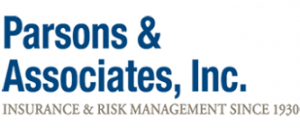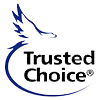P – Glossary of Terms
ALPHABETICAL LISTING
A | B | C | D | E | F | G | H | I | J | K | L | M | N | O | P | Q | R | S | T | U | V | W | X | Y | Z
Package Policy: Any combination of two or more lines of coverage’s into a single policy.
Paid-Up Insurance: Insurance on which all required premiums have been paid.
Paramedical Examination: Physical examination of an applicant by a trained person other than a physician, usually done for a life insurance policy or a individual health insurance policy.
Partial Disability: The result of an illness or injury which prevents an insured from performing one or more of the functions of their occupation.
Participating Policy: A life insurance policy under which the company agrees to distribute to policyholders the part of its surplus which its Board of Directors determines is not needed at the end of the business year.
Pension Benefits: A series of payments to be provided in accordance with the plan of benefits.
Pension Plan: A plan established and maintained by an employer, group of employers, or union to provide for the payment of determinable benefits to participants after retirement.
Percentage Participation: A provision in a health insurance contract that the insurer and insured will share covered losses in agreed proportions.
Per Claim Deductible: The most a law firm would pay for each claim reported during the policy year.
Peril: The cause of a loss insured against in a policy.
Permanent Life Insurance: A phrase used to cover any form of life insurance except term; generally insurance that accrues cash value, such as whole life.
Permit Bond: A bond that guarantees a person who has been issued a permit will comply with any laws and ordinances in which the permit was issued.
Persistency: A term used to refer to the length of time insurance remains continuously in force with a company.
Personal Articles Floater: A type of insurance designed to meet the needs for insurance on property of a moveable nature. This coverage usually protects against all physical loss, subject to special exclusions and conditions. Examples of this type of property include jewelry, furs, silverware, fine arts, and valuable collectors pieces..
Personal Injury Protection (PIP): First party no fault coverage in which an insurer pays, within specified limits, the medical, hospital, loss of work income, and funeral expenses of the insured.
Personal Lines: Those types of insurance, such as individual automobile or home insurance rather than for businesses or organizations.
Physical Damage: Damage to or loss of an automobile resulting from a named peril.
Plan Administrator: The person(s) controlling money or property contributed to the plan, usually designated in the plan agreement.
Point-of-Service Plans: These plans permit insureds to choose providers outside the plan yet are designed to encourage the use of network providers. A hybrid of a HMO and PPO.
Policy: The legal document issued by the company to the policyholder, which outlines the conditions and terms of the insurance; also called the policy contract or the contract.
Policy Dividend: A refund of part of the premium on a participating insurance policy reflecting any difference between the premium charged and actual experience.
Policy Loan: A loan made by a life insurance company from its general funds to a policyholder on the security of the cash value of a policy.
Policy Reserves: The measure of the funds that a life insurance company holds specifically for fulfillment of its policy obligations.
Policy Term: The period of time for which an insurance policy provides coverage.
Policyholder: The person who owns a life insurance policy. This is usually the insured person, but it may also be a relative of the insured, a partnership or a corporation.
Policyholders’ Surplus: Sum over and above liabilities available for an insurer to meet future obligations to its policyholders.
Pool: An organization of insurers or reinsurers through which particular types of risk are underwritten.
Pre-Admission Certification: The process in which a health care professional evaluates an attending physician’s request for a patient’s admission to a hospital to evaluate whether or not inpatient care is necessary.
Preexisting Condition: A physical and / or mental condition of an insured which first manifested itself prior to the effective date of a policy.
Preferred Provider Organization (PPO): An arrangement whereby a third-party payer contracts with a group of medical care providers who furnish medical services at lower than usual fees in return for prompt payment and a certain volume of patients.
Premium: The sum paid by a policyholder to keep their insurance policy in force.
Premium Finance: Allows the insured to pay part of the premium when coverage takes effect and pay the rest during the policy period through arranged payments.
Primary Insurance: Insurance that pays compensation for a loss ahead (first) of any other insurance coverage’s the policyholder may have.
Principal Sum: An amount payable in one sum in the event of accidental death and in, some cases, accidental dismemberment.
Probate: A court-supervised process of validating or establishing distribution of assets of a deceased including the payment of outstanding obligations.
Probate Estate That portion of the assets and liabilities whose distribution is supervised by the courts in the probate process.
Probationary Period: A period from the policy date to a specified time during which no sickness coverage is effective. This is designed to eliminate any sickness actually contracted before the policy went into effect.
Product Liability: Legal liability incurred by a manufacturer, merchant, or distributor because of injury or damage resulting from the use of their product.
Product Liability Insurance: Protection against financial loss arising out of the legal liability incurred by a manufacturer, merchant, or distributor because of injury or damage resulting from the use of a covered product.
Proof of Loss: Documentation presented to the insurance company by the insured in support of a claim so that the insurer can determine its liability under the policy.
Property Insurance: Insurance providing financial protection against the loss of, or damage to, real and personal property caused by a covered peril.
Provision: A clause, sentence, or paragraph which of an insurance contract describes or explains a feature, benefit, condition, or requirement of any insurance protection afforded by the contract.
Proximate Cause: The effective cause of loss or damage; an unbroken chain of events between the occurrence and damage.
Punitive Damages: A court awarded amount that exceeds the economic losses and general damages of a defendant and is intended solely to punish the plaintiff because of reckless or malicious acts.
Pure Risk:
Uncertainty whether a loss will occur. Only pure risks are insurable.
ALPHABETICAL LISTING
A | B | C | D | E | F | G | H | I | J | K | L | M | N | O | P | Q | R | S | T | U | V | W | X | Y | Z






